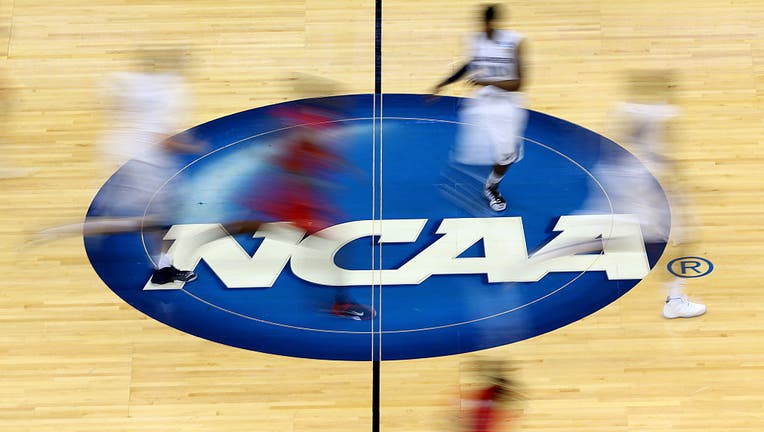NCAA and major conferences agree to $2.8 billion settlement for athlete compensation

Mississippi Rebels and Xavier Musketeers players run by the logo at mid-court during the second round of the 2015 NCAA Men's Basketball Tournament at Jacksonville Veterans Memorial Arena on March 19, 2015 in Jacksonville, Florida.
LOS ANGELES - The NCAA and the five largest conferences have agreed to a $2.8 billion settlement to resolve antitrust claims, potentially directing millions of dollars to athletes by fall 2025.
This agreement, pending approval from a federal judge, marks a significant shift towards compensating college athletes like professionals, allowing schools to use direct payments to attract top talent.
Historic end to NCAA amateurism model
The settlement signifies the end of the NCAA’s amateurism model, which has existed since 1906. The agreement requires the NCAA and conferences to pay $2.77 billion over ten years to over 14,000 athletes.
This comes after athletes claimed that previous rules prevented them from earning money from endorsements and sponsorships since 2016.
"Even though it was only because of overwhelming legal pressure, the NCAA, conferences, and schools are agreeing that college athletes should be paid," said Ramogi Huma, a former UCLA football player and advocate for athlete compensation. "And there’s no going back from there. That’s truly groundbreaking."

18.7M people watched NCAA Women's Basketball Final
South Carolina's victory over Iowa in the NCAA women's national championship game Sunday afternoon averaged 18.7 million TV viewers and set new marks inside and outside women's college basketball.
How will this impact the athletes?
The settlement will allow college athletes to receive direct payments, potentially starting by fall 2025. Schools can allocate up to $21 million annually to share with athletes.
All athletes will be eligible for these payments regardless of sport, and schools will determine how to distribute the funds. Scholarship limits by sport will be replaced by roster restrictions, giving schools more flexibility in compensating their athletes.
Conferences sign off on historic deal
According to a person with direct knowledge of the decision, the Pac-12 was the final conference to sign off when university leaders voted Thursday to approve the plan. A few hours earlier, Southeastern Conference school leaders unanimously approved the deal, a second person with knowledge of that decision said.
Both spoke to The Associated Press on condition of anonymity because a coordinated announcement among the Pac-12, SEC, Big Ten, Big 12, Atlantic Coast Conference, and NCAA was still being prepared. All met a Thursday deadline set by plaintiffs’ attorneys.
The Associated Press contributed to this story.

